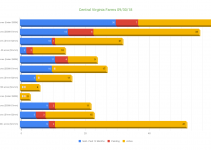24 Things You Need to Know when Buying a Farm in Virginia
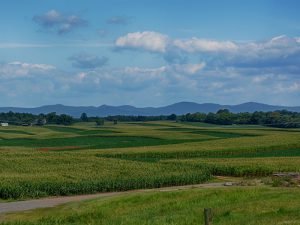
Buying a farm in Virginia is more complex than an average residential real estate transaction. When buying farmland, usability and liability issues come into play. Regardless of your reason for purchasing the farm, it is an investment and one that you want to see appreciation of value over the years. Virginia is a “Caveat Emptor” (buyer beware) state, which means you need to do your due diligence prior to purchasing any real estate in Virginia, as the seller is not responsible for telling you everything about the property. In this article, we will address 24 items to consider and explore to help you perform your due diligence prior to purchasing any type of farm. This post should serve as a checklist and guide, however, there may be some items that will not apply to your specific farm purchase. There also may be items that you should investigate that are not included in this article. Every parcel of land and farm are unique and may have issues to consider not covered in this document. This post should not be considered legal advice and we highly encourage you to obtain legal counsel whenever you buy real estate in Virginia.
1 . Survey: Is there a current survey of the property? The more recent the survey, the better. However, to be 100% sure that the property lines are where you think they are, that there are no new easements and/or encroachments, it is always a good idea to have the property surveyed or at the least have the property corners marked.
2. Perc Test: Whenever purchasing raw land, you should have a perc test performed. Perc is short for percolation rate or how well water is absorbed in the soil. The test should be performed by an Approved Onsite Soil Evaluator (AOSE) licensed in the state of Virginia.
The AOSE can tell you the type and size of the septic system that you will need to install. In Virginia, the size of the septic system is determined by the number of bedrooms in the house and not by the number of bathrooms. Septic systems for non-residential structures follow a different set of guidelines, so make sure you specify what the perc test is for.
Different soil types have different absorption abilities. There are some soils that do not perc. For these soils, there are alternative septic systems available, but they are more expensive to construct and to maintain than conventional septic systems. If you need to go the alternative septic route, talk with the County Health Department to see if the county has any additional regulations concerning alternative systems.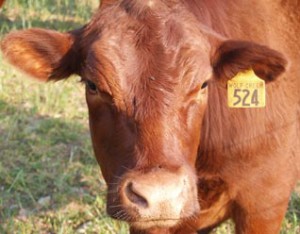
If the seller already has a perc test that he/she is willing to share with you, make sure that the county standards have not changed since the test was performed. Generally, perc test are only valid for one year, in which case you will need to perform another perc test prior to the construction of your home or other structure. If the location of the septic tank and drainfield have been included on a survey, then the perc test recorded may be used anytime in the future. Check with the County Health Department to be sure!
If there is already a home on the farm, there should be a septic system in place. Don’t assume that there is one! Ask questions about it. Is there a septic report available, either from the owner or the county? Where are the tanks and drain field located? How many bedrooms is it approved for? Has it been pumped recently? One safe approach is to request that the tank be pumped; if the septic company cannot find a tank to pump, that’s a clue!
3. Well: Is there a well already on the property? Can you obtain county records on it? Only in the last twenty or so years has Virginia maintained good records on the wells, so if the well was drilled prior to 1990, you might not be able to obtain any information on it.
You can have a well company visit the property and give you an estimate of the gallons per minute (gpm) and the depth of the well. From this information the well company representative can give you an idea of the quality of the well. You can also have the well water tested for pollutants and the quality of the water.
If there is no well on the property, you should consider having one drilled prior to purchasing the property. A well permit will need to be obtained from the county health department prior to drilling a well. Even if you are purchasing a large tract of land, do not assume that somewhere you will be able to find adequate water. You may want to include language in your offer which will allow you to drill a well prior to purchasing the property.
If you do not want to incur the expense a drilling a well, at the very least, talk with a well drilling company in the area and find out if that particular area has problems with finding water for wells.
4. Environmental Assessment: What you don’t know or see can hurt you. Generally older farms had an area in which they dumped their broken-down equipment and refuse. An environmental assessment will locate these landfills and then test for toxic substances. The assessment can also determine if the land was ever in an orchard and test the soils for high concentrations of pesticides or chemicals such as arsenic, which does not break down in the soil as do most other chemicals.
An inspection can also determine if there are any underground storage tanks and if there are any problems with leakage. Currently there are government funds in place that may help with the cost of cleaning up leaking underground storage tanks.
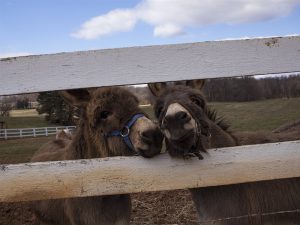 5. Title Report: If a loan is obtained when purchasing a property, a title report must be done at closing to ensure that you are receiving a clear title. We recommend that the title report be completed during a study period prior to being totally committed to purchasing the property. A title report will reveal any and all easements on the property. Quite often a seller may not be aware of unused easements across his or her property. Sometimes other issues may be detected in a title report that can delay closing. If detected early, a seller has time to try to remedy these problems prior to closing.
5. Title Report: If a loan is obtained when purchasing a property, a title report must be done at closing to ensure that you are receiving a clear title. We recommend that the title report be completed during a study period prior to being totally committed to purchasing the property. A title report will reveal any and all easements on the property. Quite often a seller may not be aware of unused easements across his or her property. Sometimes other issues may be detected in a title report that can delay closing. If detected early, a seller has time to try to remedy these problems prior to closing.
6. Electricity: The electric companies have territories in Virginia. Just because an electrical pole is on the land that you plan to purchase, do not assume that you have electricity routed to your property. Most likely you do, however, if the property happens to be located where one of the territory lines are, you may be faced with trying to obtain an electrical easement from an adjacent land owner. It is better to know this early on.
7. Land Use: Is the property enrolled in a land use program, which reduces the real estate tax rate for agricultural and forestal lands? If so, will the sale of the property create any tax burden, called rollback taxes, and if so, who will be responsible for these taxes—you or the seller? Rollback taxes generally amount to the difference between the land use tax amount and the amount of the normal tax rate for the past five years. Needless to say, this can amount to a hefty amount. If the land is currently enrolled in land use, and if you want to continue it, then you will need to apply with the county at closing. If the land is not in land use, but you want it to be, what do you need to do in order to qualify it and how long will it take?
8. Government Programs: Is the property enrolled in any government programs that you will have to continue participating in, or can you pay a fee to discontinue the program? There are many different programs that protect streams, wetlands and/or wildlife. Knowing which programs are available that help you pay for fencing or water for livestock may help you make your buying decision. Contact the USDA Farm Services Office and the Natural Resources Conservation Service for that particular county to have a determination made.
9. Soils: What is the quality of the soil? Have there been recent soil tests performed? Is the soil deficient in any nutrients? Has the owner adhered to a consistent fertilizer program? Have bio-solids been applied to the soils?
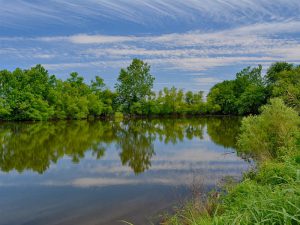 10. Wetlands: Wetlands in Virginia are highly protected. A strong indicator is if the property contains any wetland grasses such as cattails, but cattails don’t necessarily need to be present for the land to be considered a wetland. You should contact the USDA Natural Resource Conservation Service for that particular county to be sure that your future plans do not impact a wetland area. There are large fines issued for disturbing wetlands in Virginia.
10. Wetlands: Wetlands in Virginia are highly protected. A strong indicator is if the property contains any wetland grasses such as cattails, but cattails don’t necessarily need to be present for the land to be considered a wetland. You should contact the USDA Natural Resource Conservation Service for that particular county to be sure that your future plans do not impact a wetland area. There are large fines issued for disturbing wetlands in Virginia.
11. Conservation Easements: Is the land in a conservation easement? If so, what are the restrictions? A conservation easement runs with the land in perpetuity and making any changes to the easement may be difficult or impossible. Restrictions always include the number of parcels that the property can be divided into, but may also include language as to the size, number, and potential locations of homes or buildings that can be built on the property.
12. Ag-forestal Districts: Is the land in an ag-forestal district? If so, what restrictions does it place on the land? When is the district up for renewal? Can the land be pulled out of the district early and if so, are there any penalties? An ag-forestal district generally restricts the division of the property over a certain period of time. Land use tax rates are applied to the land while it is enrolled in the program. The renewal dates allow a period in which the land may be removed from the district without penalty.
13. Historic Districts & Easements: Is the farm in a historic district? Are there any restrictions? Also, is the home or any buildings on the farm under any type of historic restrictions/easement even if the farm is not in a historic district?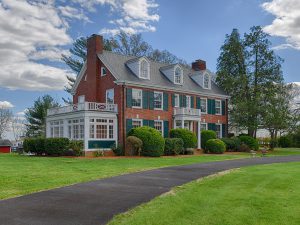
14. Ponds and Lakes: Does the property have a pond or lake? If the property has a large lake then it may be regulated by the Virginia Department of Dam Safety. You should check with them to be sure that the dam is in compliance and if it is not, what will it take to bring the dam into compliance. If the dam maintenance has been deferred for a long period of time, it can be quite costly to remediate. Warning signs can be dam erosion, overflow pipes clogged, and/or trees and shrubs growing on the dam.
If you want to build a pond or lake, you should talk with the USDA Natural Resource Conservation Service to be sure that the soils and topography are appropriate as well as what requirements must be met. Basically, the larger the pond or lake area, the more involved the process is.
15. Access: Does the property have public road frontage? If not, is there a recorded ingress & egress (right-of-way) easement allowing for access? Do other property owners also use the road? If so, is there an agreement in place for the maintenance of the road? Is the easement prescriptive (created by use over the years, but not recorded)? The title search will help you to determine this if it is not known.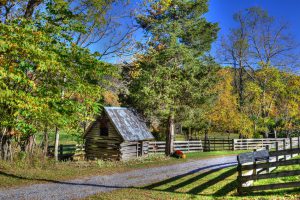
16. Adjacent Parcels: Can they be developed and to what extent? If you evaluate this and learn the worst-case scenario use of each parcel, then in the future you will not be surprised if a subdivision sprouts up on your neighbor’s beautiful horse farm. Is the land in a high-growth area? Is the land in the path of potential growth? Depending on your purpose for the land, these items may be good if you are looking at your land solely for investment returns, yet bad if you want quiet enjoyment of your land.
17. Leases: Are there any existing leases on the property? These can be tenant leases, agricultural leases, hunting leases as well as mineral or water leases. Can they be extinguished prior to closing or will they have to be honored by you?
18. Local Ordinances: Are there any local ordinances that may prevent you from utilizing the property in your desired manner? Many local ordinances exist which may impact the use of land. Land slope restrictions, division rights, stream crossings and mountain top ordinances are a few. Do you want to raise chickens or swine? The property may also be in a special area such as an historical district which may impact your use of the property.
19. Your intended use: Do you plan to farm the land? Do you want to lease the land to a local farmer? Is there a current lease arrangement in place? Will local farmers be interested in farming the land? What can you expect to receive for a farm lease? Is it a large enough and a good enough farm for a farmer to want to lease it? Are the soils of the proper type to grow your intended crops or support your livestock? Can you construct the farm buildings that you need on the property?
20. Buildings: What buildings are on the property? Are they in good condition? Are they buildings that are needed for your intended use? Will they be easy to maintain?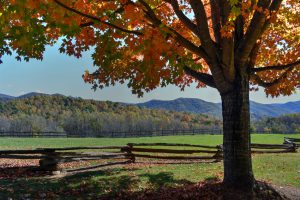
21. Fencing: Is there any fencing on the property? Is it usable for your intended use? Will you need to remove and replace the existing fencing?
22. Insurance: How do you plan to use the farm and can you insure it against possible losses? Can you obtain insurance on the buildings and/or the home?
23. Services: These may or may not be important to you. What is the Internet service? Cell phone reception? Garbage pickup? Where is the closest grocery store? Hospital? Fire and Rescue services?
24. Crime: Check out the crime statistics in the area and the state sexual offender registry. Talk with the county Sheriff and you can learn a lot about what’s happening in the area that a real estate professional by law, cannot tell you.
These are just a few of the items to ask and consider when purchasing a farm in Virginia. If you are considering buying a farm or large acreage in Central Virginia, contact Gayle Harvey, broker at Gayle Harvey Real Estate, Inc. for assistance in handling all phases of your property search, including the 24 items above. Gayle is the only National Association of Realtors Accredited Land Consultant (ALC) in the Charlottesville area and is one of only 18 in the state of Virginia. ALC’s have successfully completed several in-depth classes related to land and farm brokerage in addition they have demonstrated their knowledge by closing a substantial number of land and farm sales in their area. Gayle or one of her associates can help you locate your dream farm in Virginia while navigating the complex questions outlined in this article. Gayle can be reached at Gayle@GayleHarveyRealEstate.com or 434-220-0256. Visit her websites at: www.CentralVaFarms.com www.VaFarmsAndEstates.com, www.cattlefarmsinvirginia.com or www.CharlottesvilleHorseFarm.com
